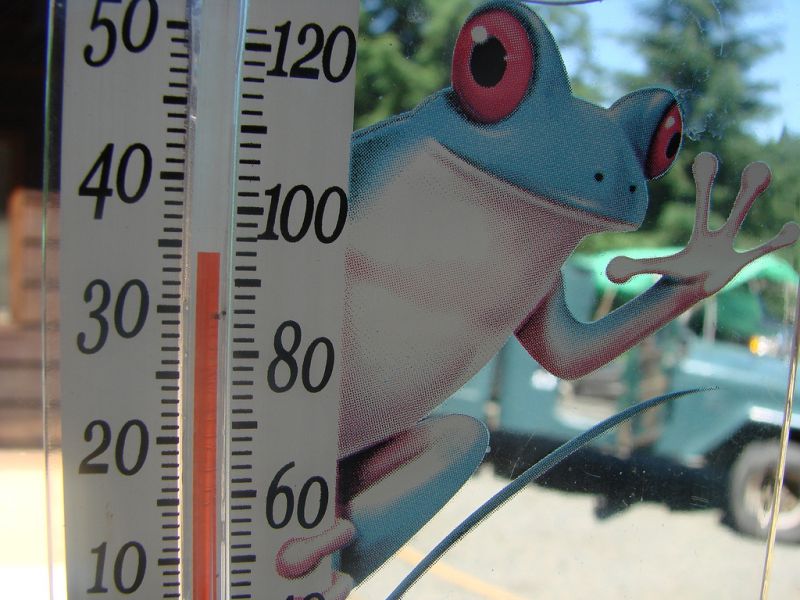
CrestedCrazy/<a href="http://www.flickr.com/photos/crestedcrazy/195629870/sizes/l/in/photostream/">Flickr</a>
A study published this week in science journal Climatic Change models how hospital admissions for things like diabetes, kidney stones, and suicide attempts will rise along with the temperature, something that’s expected to happen as global warming increases the average yearly temperature and causes temperature swings. Those most at risk for climate-related hospital admittance (and resulting deaths) are the very young and the elderly, whose regulatory systems are less able to adapt to high temperatures. With a health care system that is already taxed, such an increase could overwhelm small hospitals or those with limited resources.
The authors of the study—from University of Wisconsin-Madison, Purdue University, and the National Center for Climatic Research—used 17 years of data from Milwaukee hospital admissions and found that hospital admissions for ailments involving the kidneys would increase 13% for every 2 degrees the mercury rose above 85 degrees Fahrenheit; endocrine disorders would increase by 9%. Accidents and suicide attempts would start increasing by about 3% for every 2 degrees over 81 degrees Fahrenheit. With temperatures projected to rise an average of 5 degrees in summer months, by 2059 this would mean hundreds of additional patients with heat-related renal and endocrine ailments in Milwaukee alone. Project that across the US, and that’s a substantial increase in hospital traffic, and provider workloads, especially considering the aging Baby Boomer population.
The health effects of increasing temperatures would be especially felt by the elderly, who can’t sweat as well as younger people, have weaker hearts, and may have other health problems that make them more susceptible to high or quickly changing temperatures. Children under age 5 would also be susceptible. The authors recommend that health care providers do what they can to prepare for these climate-related admissions. “Public health strategies should focus on prevention efforts by targeting groups at risk, especially the elderly” and those with pre-existing health conditions, they wrote.















